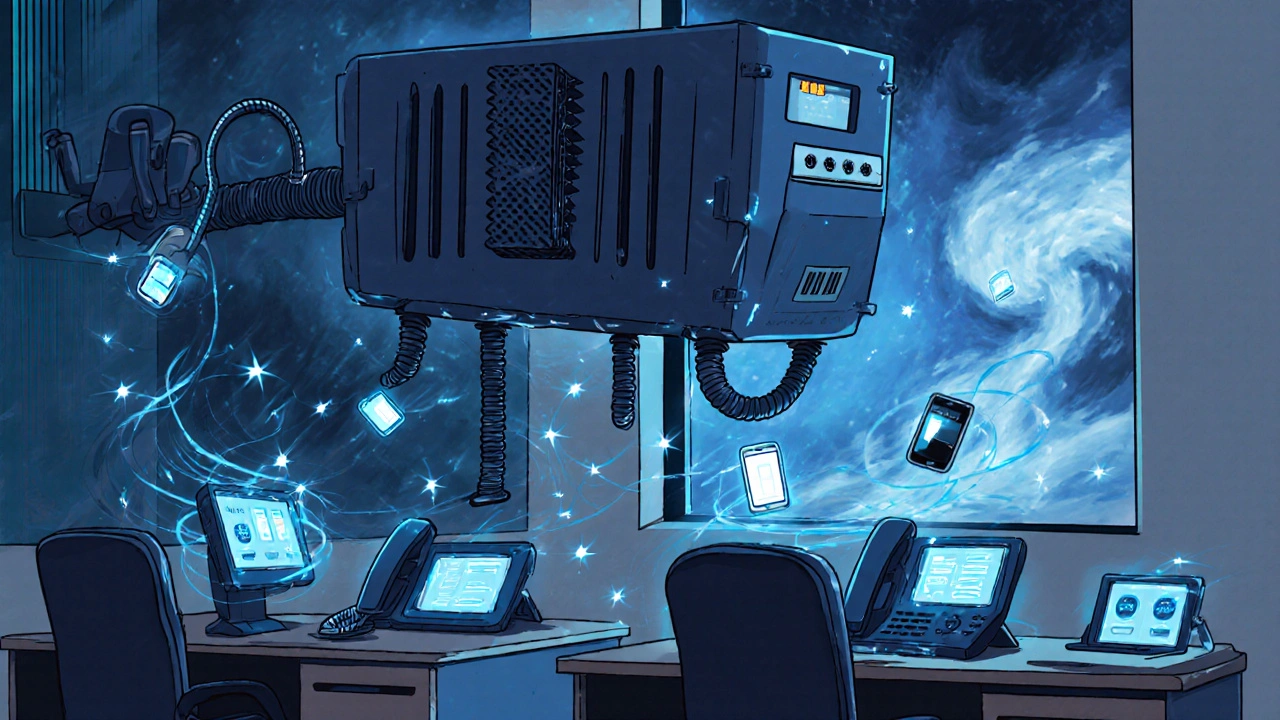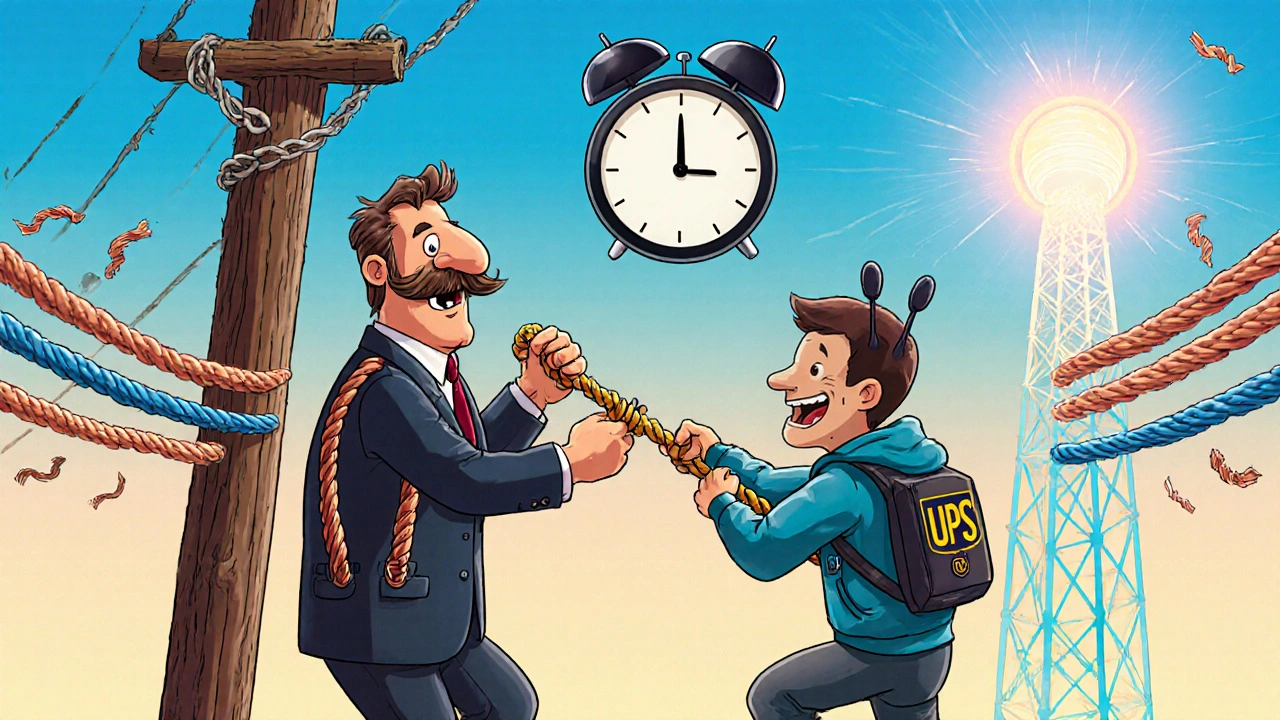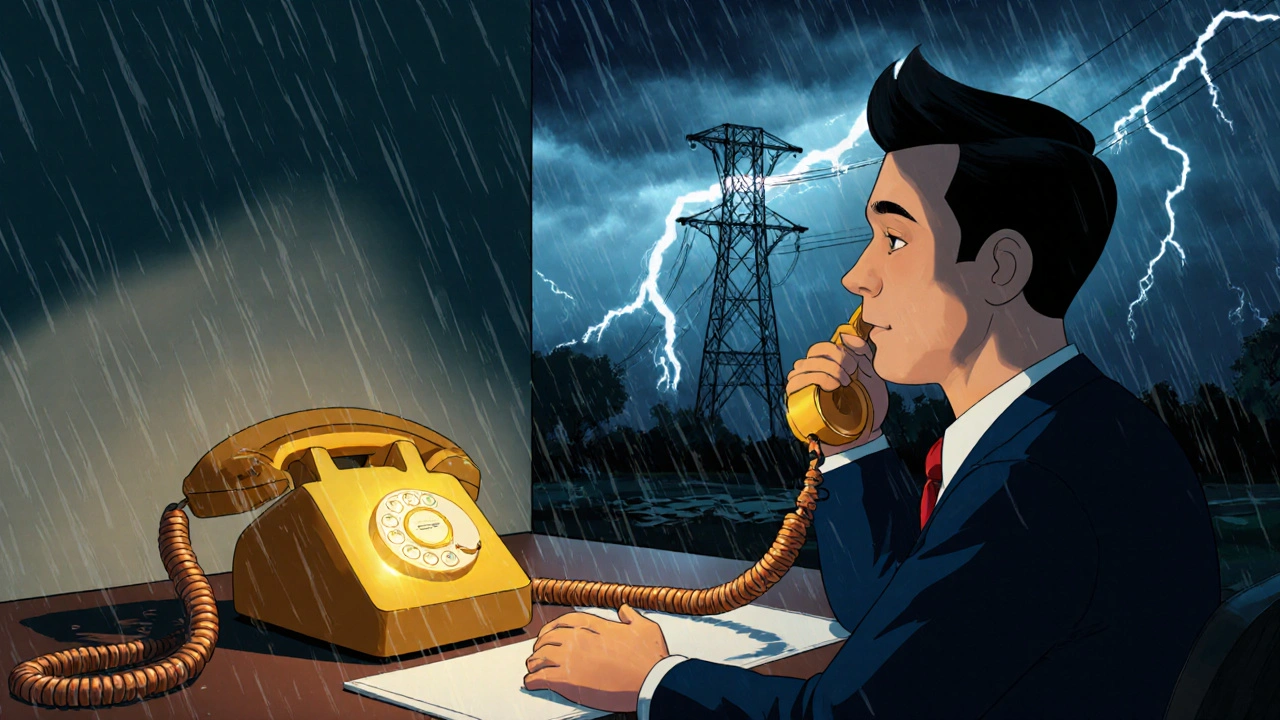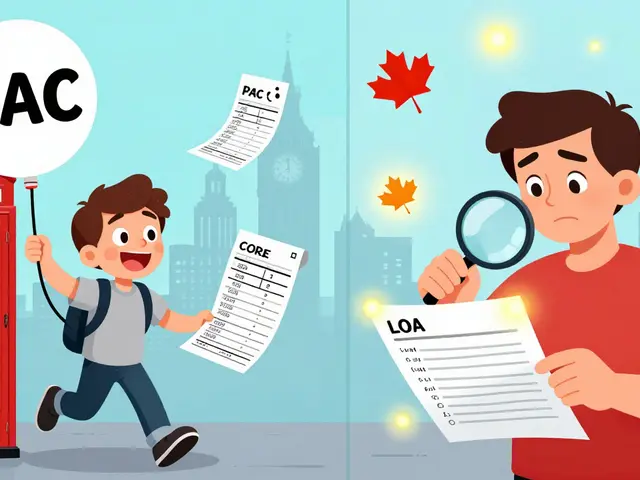When your business phone goes down, it’s not just an inconvenience-it’s a revenue leak. Customers can’t reach you. Emergency calls stall. Operations grind to a halt. So which system actually keeps you connected when it matters most: VoIP or landlines?
Landlines: The Old Guard That Still Works
Landline phones run on copper wires and analog signals. They’ve been around since the 1870s, and for good reason: they’re simple, stable, and don’t need your internet to work. Even when the power goes out in your office, a basic corded landline phone will still ring. No batteries. No router. No Wi-Fi. Just the phone line and the central office’s backup power.That’s why landlines still win in emergencies. During hurricanes, ice storms, or blackouts, businesses with landlines often keep communicating while VoIP users are left with dead phones. The FCC’s 2022 survey found that 98.7% of landlines stayed functional during regional outages. That number drops to 42.3% for VoIP systems without backup power.
Call quality on landlines is also consistent. The ITU-T P.800.1 standard measures voice clarity on a scale of 1 to 5. Landlines consistently score between 4.0 and 4.2-solid, clear, no surprises. They don’t crackle when your neighbor streams Netflix. They don’t drop calls when your Zoom meeting spikes bandwidth use. For decades, that predictability made landlines the gold standard.
VoIP: The Digital Upgrade That’s Now Reliable
VoIP sends voice calls over the internet using data packets. Early VoIP was shaky-echoes, delays, dropped calls. But that’s not 2025 anymore. Modern business-grade VoIP systems like RingCentral, Nextiva, and Vonage now offer 99.999% uptime. That’s five nines. It means less than 5 minutes of downtime per year.How? Redundancy. Top providers don’t rely on one server. They spread calls across 10+ data centers across North America. If one goes down, traffic reroutes instantly. RingCentral’s network spans 46 countries. Nextiva has 12 redundant centers. These systems don’t just survive outages-they plan for them.
And here’s the kicker: VoIP can automatically forward calls to your mobile phone during an internet outage. If your office loses power, your calls still ring on your phone. That’s something a landline can’t do unless you’ve set up a separate cell forwarding system-which most small businesses never bother with.
The Power Problem: Landlines Win, But VoIP Has a Fix
The biggest weakness of VoIP is power dependency. No electricity? No internet? No calls. But that’s changing fast.Businesses using VoIP today are installing UPS (uninterruptible power supplies). These battery backups keep routers, phones, and switches running for 4-8 hours during outages. When Nextiva tracked its enterprise clients, companies using UPS saw their outage failure rate drop from 37% to just 5%.
And then there’s cellular failover. RingCentral’s Resilience Package adds $3.50 per user/month to automatically switch calls to cellular networks when internet drops. In their Q3 2023 tests, this kept 98.2% of calls connected during simulated outages. That’s better than most landline systems.
Landlines still win if you’re in a rural area with no backup power. But if you’re in a city, have a business-grade internet plan, and invest in a $200 UPS? VoIP becomes the more reliable option.

Infrastructure Is Aging-Landlines Are Disappearing
Here’s the quiet crisis: the copper wires that landlines rely on are being ripped out. AT&T, Verizon, and other providers are shutting down legacy networks under the FCC’s 2022 Network Transition Order. By 2026, half of all remaining landline infrastructure will be gone.That means repair delays. Technician shortages. Fewer spare parts. Midwest Manufacturing reported a 22% increase in landline repair times in 2022 compared to 2020. In rural areas, it’s worse. One network admin on Reddit said after switching from AT&T landline to Vonage VoIP, they had 3x more dropped calls during summer storms-until they upgraded their internet and added a UPS.
VoIP doesn’t need copper. It runs on fiber, cable, or 5G. Internet infrastructure is getting stronger, not weaker. The FCC’s 2023 Broadband Reliability Framework now requires ISPs to guarantee 99.95% uptime for business internet. That’s tighter than most landline SLAs.
Real-World Reliability: What Users Are Seeing
Look at the data from real users:- On Trustpilot, landline users praise “consistent call quality during power outages”-mentioned in 68% of positive reviews.
- On G2, VoIP users say “redundant systems preventing outages” is their top reason for satisfaction-73% of reviews highlight this.
- In January 2023, a CenturyLink outage knocked out 1.2 million landlines for 8.5 hours. A separate Vonage outage affected 300,000 users for 4.2 hours. Both systems failed, but VoIP recovered faster.
- A tech company in Florida used VoIP during Hurricane Ian. While competitors lost landlines for 12+ hours, their system rerouted calls to employees’ phones. Zero missed client calls.
VoIP isn’t perfect. But it’s getting better, faster, and more resilient. Landlines are holding steady-but only because they’re not changing.

Which One Should You Choose?
It’s not about which is “better.” It’s about what fits your situation.Choose landlines if:
- You’re in a rural area with unreliable internet
- You can’t afford backup power or IT support
- You need a simple, no-tech solution for emergencies
Choose VoIP if:
- You have business-grade internet (100 Mbps+ symmetrical)
- You can install a UPS and configure QoS on your router
- You want call forwarding, voicemail-to-email, video meetings, and remote work support
- You’re worried about long-term support-copper is disappearing
Most smart businesses now use hybrid systems: VoIP as the main line, with a single landline as a backup for emergencies. Or they use VoIP with cellular failover. That’s the future.
The Bottom Line
In 2025, VoIP is more reliable than landlines for most businesses-if you set it up right. Landlines still win in pure power-outage scenarios, but that’s becoming rarer. With better internet, battery backups, and automatic failover, VoIP doesn’t just match landline reliability-it exceeds it in flexibility, scalability, and future-proofing.The real question isn’t “Which is more dependable?” It’s “Which system will still be around in 2030?” The answer is clear: VoIP. Landlines are a legacy system. And legacy systems don’t last forever.
Do landlines work during a power outage?
Yes, traditional corded landline phones work during power outages because they get power from the phone line itself, not your home or office electricity. But cordless phones and modern digital landlines with base stations will not work without power.
Can VoIP calls drop during internet outages?
Yes, if your internet goes down and you don’t have a backup. But business-grade VoIP systems now include automatic failover to cell phones or alternate internet connections. With a UPS and cellular backup, call drop rates fall below 2%.
Is VoIP more secure than landlines?
Landlines are harder to hack because they use physical wires. VoIP runs over the internet, so it’s vulnerable to cyberattacks if not secured. But modern VoIP providers use encryption (TLS/SRTP), firewalls, and two-factor authentication. With proper setup, VoIP is just as secure as landlines-and often more so.
Why are companies switching from landlines to VoIP?
Companies switch because VoIP offers better features (video calling, voicemail-to-email, remote work), lower costs, and more reliability with modern backups. Landlines are being phased out by telecom providers, making long-term support uncertain. VoIP is the future-proof choice.
Do I need a special phone for VoIP?
You can use a regular analog phone with an ATA adapter, but for best results, use a dedicated IP phone designed for VoIP. These phones have built-in network connectivity, better audio quality, and support advanced features like call forwarding and conferencing.
How much internet speed do I need for VoIP?
For one call, you need at least 100 kbps upload and download. For a 10-person office, aim for 100 Mbps symmetrical. For 50+ users, 500 Mbps or higher is recommended. Quality of Service (QoS) settings on your router are essential to prioritize voice traffic.
Will landlines disappear completely?
Yes, eventually. AT&T plans to retire 50% of its copper network by 2026. Other providers are following. Landlines won’t vanish overnight, but support, repairs, and new installations will become harder and more expensive. Businesses should plan to transition.









Christina Kooiman
4 Nov 2025 at 15:55Okay, I just read this whole thing and I’m not even mad-I’m impressed. Like, truly. I used to think landlines were the only way to survive a storm, but then I remembered my cousin’s business in Ohio lost power for 72 hours during that ice storm last winter-and their VoIP system? Still ringing. How? UPS. Cellular failover. A $200 battery backup that didn’t even blink. I thought I was tech-savvy until I saw that. And then I checked the FCC stats again. 98.2% call retention? That’s not luck. That’s engineering. Landlines don’t crackle when your neighbor binge-watches TikTok. True. But VoIP doesn’t die when your internet goes out if you’ve got the right setup. And guess what? Most small businesses don’t. But they should. Because copper is literally being ripped out of the ground like it’s 1999 and we’re all still waiting for the phone man to fix the line. He’s not coming. The future is fiber. And if you’re still clinging to a corded phone like it’s a security blanket, you’re not being cautious-you’re being nostalgic. And nostalgia doesn’t pay your bills when your customers can’t reach you.
Also, I cried a little when I read about Hurricane Ian. That company kept every call connected. That’s not tech. That’s survival.
Landlines are a museum piece. VoIP is the emergency room.
Stop romanticizing the past. Upgrade.
And yes, I’m still mad I didn’t do this sooner.
Now excuse me while I go buy a UPS.